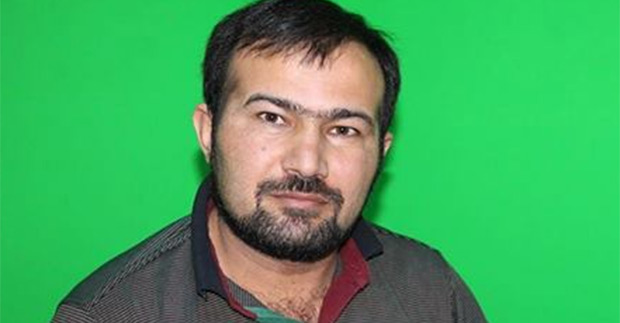The week in free expression: 12 September – 19 September 2025
Bombarded with news from all angles every day, important stories can easily pass us by. To help you cut through the noise, every Friday Index publishes a weekly news roundup of some of the key stories covering censorship and free expression. This week, we look at threats to cut funding for an Israeli film festival and arrests for projecting photographs onto Windsor Castle.
Israeli film festival faces funding cut threat
Israeli Culture Minister Miki Zohar has threatened to cut funding for the country’s national film awards after its top award was won by a movie about a Palestinian boy.
The Sea, written and directed by Israeli director Shai Carmeli-Pollak, won best film at the Ophir Awards, and automatically became Israel’s entry for the best international feature category at next year’s Oscars.
The movie follows the story of a 12-year-old Palestinian boy who attempts to travel from the West Bank to Tel Aviv to see the sea. It received 13 nominations, winning five.
In a post on X, translated from Hebrew, Zohar said: ‘There is no greater slap in the face of Israeli citizens than the embarrassing and detached annual Ophir Awards ceremony. Starting with the 2026 budget, this pathetic ceremony will no longer be funded by taxpayers’ money. Under my watch, Israeli citizens will not pay from their pockets for a ceremony that spits in the faces of our heroic soldiers’
The news comes during boycotts of the Israeli film industry from across Hollywood, with hundreds of actors, directors and producers taking part. The debate even made its way to the Emmy awards this week, with actors such as Javier Bardem vocalising his support for Palestine.
Trump picture on Windsor Castle leads to four arrests
Protest group Led by Donkeys made the news this week with their protest against a state visit to the UK by US President Donald Trump.
Four members of the group were arrested following the projection of images linking Trump to convicted sex offender Jeffery Epstein.
A spokesperson for the group told the Guardian: “We’ve done, I reckon, 25 or 30 projections since we’ve been going. Often the police come along and we have a chat to them, and they even have a laugh with us and occasionally tell us to not do it. But no one’s ever been arrested before, so it is ridiculous that four of our guys have been arrested for malicious communications.”
The protest group has previously taken over a screen at a Reform UK event, placed a large banner depicting a bombed out Gaza across from the London HQ of the Labour party, an action which led to the arrest of two of the organisation’s founders.
The news comes during a crackdown on freedom of speech in the US this week, with Trump initiating a $15 billion lawsuit against the New York Times for publishing a story linking him to Epstein.
The New York Times responded with the following statement: “This lawsuit has no merit. It lacks any legitimate legal claims and instead is an attempt to stifle and discourage independent reporting. The New York Times will not be deterred by intimidation tactics. We will continue to pursue the facts without fear or favor and stand up for journalists’ First Amendment right to ask questions on behalf of the American people.”
Togo’s former defence minister arrested after criticising government
Marguerite Gnakadé, former defence minister in the West African nation of Togo, has been arrested after calling for the end of dynastic rule in the country.
Gnakadé has been a vocal critic of the government, calling for the resignation of the President, and for the military to stand with the people in ending the government’s rule.
Faure Gnassingbé became President of Togo following the death of his father Gnassingbé Eyadéma in 2005, who had been president since 1967. He continued in this role until he became president of the council of ministers, using constitutional amendments to hold on to power, a move that has been met with protests that left at least five people dead.
Togo has a history of repressing dissenting voices, violent repression of protests, the imprisonment of journalists critical to the regime and the 2024 banning of demonstrations organised by political parties.
Politicians in over 50 countries used ant-LGBTQ+ rhetoric during elections
A report from Outright International has found that anti-LGBTQ+ rhetoric has been used by politicians during elections in 51 out of 61 jurisdictions studied.
The NGO, which promotes LGBTQ+ rights, looked at elections worldwide throughout 2024, a year it describes as a ‘super election year’ in which more than 1.5 billion people were eligible to vote, which the NGO described as a “unique opportunity” to assess inclusion in democracies across the globe.
History was also made in 2024 with the election of Sarah McBride, the first trans person to be elected to the US House of Representatives, set against the backdrop of increasing ant-LGBTQ+ rhetoric from members of the country’s Republican party.
In countries such as Georgia laws have been passed to cut down on freedoms for LGBTQ+ people, with the ruling Georgia Dream party banning same-sex marriages and gender-affirming treatments while promoting “traditional family values”.
Alberto de Belaúnde, a director at Outright International,said: “You talk with a politician from Peru … or Hungary or the UK, you start to see common trends and you realise that it’s a global, coordinated and increasingly well-funded effort to diminish LGBTIQ people.”

